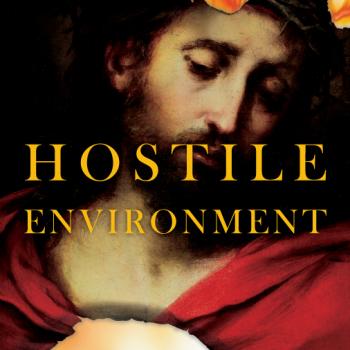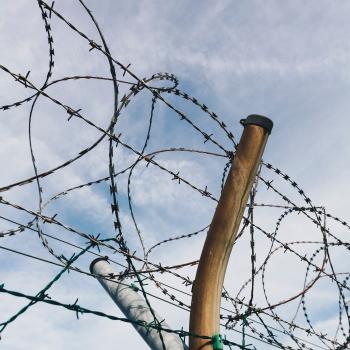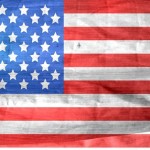A recent article questioned the value of free speech. I should not be surprised by this attack. I have heard several suggestions that free speech is just a tool for oppressors. This article seems to fall in line with that type of warped thinking. As a proud member of Heterodox Academy and an unfailing supporter of free speech, I want to address this shortsighted argument.
The author, Noah Berlatsky, articulates the arguments of Richard Delgado and Jean Stefanicic (henceforth D and S). The presentation is written in such a favorable manner that my assumption is that the author is a complete supporter of D and S’s argument. Nevertheless, I will write this as a response to D and S rather than Berlatsky.
D and S’s argument implies that speech against marginalized groups should not be allowed in certain circumstances. Their focus is clearly on the effects of hateful speech on what they term to be marginalized groups. Thus, I would assume that the speech hateful against marginalized groups would be allowed against those seen as not marginalized. If my assertion is correct, then D and S would support a bifurcated system where some people have more protections than others. In a society that has become as polarized as ours, this would merely increase intergroup hostility.
But perhaps I am incorrect. Perhaps D and S believe that protections against hate speech should be applied to everyone, and not merely those they see as marginalized. I have a way to test whether they are seeking a generalized right for everyone or only for those groups that they favor. Work I have done strongly indicates that conservative Christians are marginalized in academia. I have documented in an academic book that about half of all academics are less willing to hire a conservative Protestant if they find out that he or she is a conservative Protestant. Furthermore other research shows that stereotypes against Christians lead to their underperformance in the sciences. So we know that whatever else we can say about the power of Christians in the rest of society, that they are a marginalized group in academia.
Given that Christians are a marginalized group in academia, if we follow D and S’s arguments, then we should outlaw Christianophobic statements within academia. I remember being in graduate school and hearing professors talking about those awful Bible thumpers. It is a pretty dehumanizing way to refer to a marginalized group. I also have heard some pretty stereotyping insulting jokes about Christians in academia by those who did not know my religious affiliation. So I am certain that D and S will fight with me to rid academia of hate speech against conservative Christians.
Actually I am not at all certain that activists such as D and S care about anti-Christian hate speech. My experience tells me that individuals like this are very eager to stop hate speech against other groups, but do not care one bit about hate speech when the target is conservative Christians. In fact I often find that they will engage in Christianophobic hate speech themselves. I hope I will be proven wrong. But when those who attack the prevalence of hate speech look to protect conservative Christians in academia, then I will accept their arguments that they are not looking to create that bifurcated system of rights. Until then, I will look upon their claims with great suspicion.
D and S also seem to blow off the concern that hate speech laws will not eventually be used against the very groups they want to defend. They argue that free speech laws do not protect marginalized groups anyway. Really? Have they been to a college protest lately? Do they not see the relative freedom such protesters, who often dismiss the free speech rights of others, have to express their concerns. Do I need to post example after example of protestors who block the paths of individuals just trying to get to class or interfere with students trying to study in a library, much less the freedom to shout down speakers they do not like, to show the relative freedom such protestors have to express themselves? Merely because one can find some selected instances where certain groups do not have total free speech to protest in whatever way they want does not mean that they have not had free speech rights at most other times.
I talked to a colleague at a recent conference on free speech. Her research suggested that when laws are passed taking away the rights of people to offend others, then it does not stop at offending groups that are seen as marginalized. Indeed, such rules lead people to support further rules that prohibit offending anybody. There is a sense of fairness that people have so that if we say that you cannot offend group A, then you should also not be able to offend group B. So when D and S push for rules against hate speech, they seem to believe that we can keep these rules limited to only groups they see as marginalized. But the reality is that those rules will likely expand, and soon some of those in the marginalized groups will run afoul of these rules when they offend those in the majority group. And the second free speech rights of these marginalized group are taken away, I believe D and S will get “religion” about the value of free speech.
Finally, the entire question about what is hate speech is troublesome. Hate speech is not illegal, and it cannot become illegal. Trust me that when it is illegal that the definition of hate speech will grow. Those who argue for hate speech tend to look at the most awful situations to justify their arguments such as physical threats to members of certain groups (And if we are talking about an explicit threat of real, not rhetorical, violence then we do not have protected speech. We have a crime.). But it is dangerous to use these extreme examples to get the prohibition of hate speech into our laws. Eventually hate speech will not be limited to threats but also merely to when we hurt someone’s feelings.
Even today honestly held political opinions that offend the cultural elites will also be labeled hate speech. Do not support same-sex marriage? You must be homophobic and a hater of the LGBT community. Do not support abortion? You must be sexist. Do not support affirmative action? You must be a racist and a hater. Think that college men have due process rights if accused of rape? Why do you hate women and support a rape culture? Get the point?
I do think there are hateful people and hateful speech. Such people and such speech need to be exposed, and the proponents of hateful ideologies should be made to defend those ideologies. As long as hate speech is legal, we can debate whether certain statements are truly hateful. But start making hate speech illegal and you stifle any debate when people can be officially punished for hate speech. The hatred will go underground and then surface when we are not looking for it. I do not defend the right of the KKK member or Nazi to express himself or herself because I like the ideas expressed or want them promoted. I defend his or her right because I want to point out the idiotic nature of those ideas in an open environment so that I can discourage others who may be seduced by that evil.
My friend that I referred to earlier has also found that those who are less supportive of free speech are also less confident in their knowledge of how our government works. I have to wonder if this lack of confidence is also a feature of their own ideas. If one has less confidence that his or her ideas are defensible, then it makes sense that this person would not want to subject those ideas to scrutiny. Those of us who fight for free speech believe that ideas should be subject to testing.
This may be way advocates such as D and S oppose free speech when it comes to marginalized groups, but not other groups. Many marginalized groups feel that they have been mistreated for so long that they do not want to have to test their ideas against those of others. They want relief and do not want to have to negotiate with others to get that relief. On an emotional level I get that desire. But in a society where we have to learn how to live with each other, we do not have the luxury of avoiding negotiating with each other. We have to find solutions with which we all can live, and both marginalized and non-marginalized groups have to work out those solutions together.
So I remain a supporter of free speech. I find it the best way to expose those with awful ideas and to make sure they are not seen as martyrs. It is also the best way to bring together the best ideas from a variety of perspectives. Efforts of those such as D and S will not help us but instead will create more problems in the long run. In the short term they may shut up their opposition but, they will intensify the polarization in our society.












